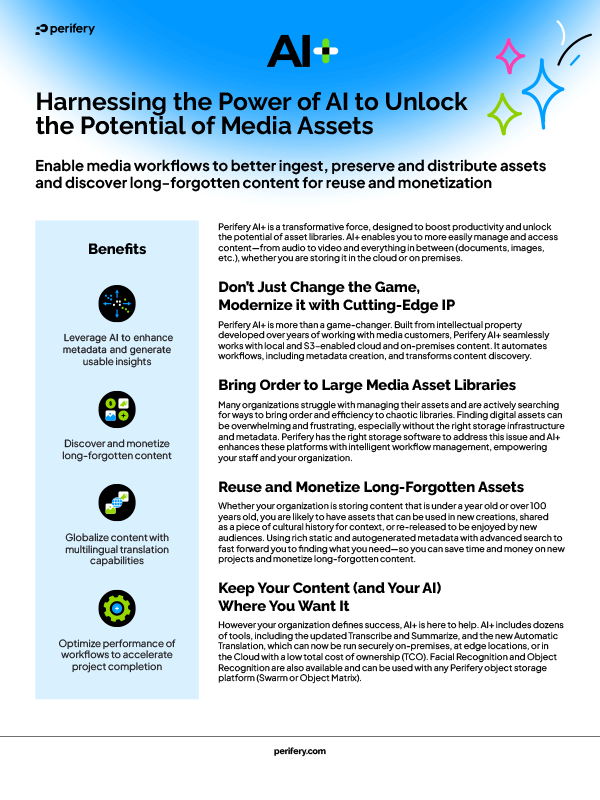
Managing and maintaining growing volumes of media content is challenging. As the industry evolves, we are seeing different formats, resolutions, and delivery methods, which add to the complexities of preserving content. As well as requiring agile systems for storage, organization, and retrieval, the industry needs open asset management policies to ensure all data remains accessible and available to the content owner.
If you don’t work in the world of media, it’s hard to gauge just how important every data asset it. And it’s not just the images, videos, and sounds that matter - it’s also the additional information that comes with each piece of content that makes the data so valuable. Insights such as metadata, usage patterns, and analytics, drive innovation and enable smart decisions within media organizations.
The value of media content
For the consumer, media content sparks emotional connections. Whether it’s a podcast, a feature-length film, or a YouTube Short, audiences turn to various sources of entertainment to enrich their lives. And it’s the job of content providers to deliver media that resonates. The insights above supply the foundations that enable content owners to meet the demands of their viewers and listeners. Often, this is done by leveraging media that lives in the archives. Not only do these existing assets provide reuse and re-monetization opportunities for the provider, but they can also be used to maximize engagement and drive consumer satisfaction.
All content, old and new, is valuable. The media that is generated today will one day become history. And the media that was generated in the past can now be used in creating documentaries, news programmes, sitcom re-runs, bite-size content, and much more. By preserving these pieces of media, we are essentially bottling history, and that in itself, provides a great deal of value.
However, without proper archiving, we risk losing these precious assets, and the consequences of data loss extend far beyond the inconvenience of misplaced files or accidental deletions.
Modern challenges in data preservation
There are many reasons for asset loss, from human error to natural disaster, or poor safeguarding to high costs. Whatever the reason, lost data from ineffective archiving practices impacts continuity, disrupts operations, and hinders productivity. Further still, it jeopardizes potentially critical information, negatively impacts customer trust, and can come with financial implications.
More than ever, media teams are having to take proactive steps to ensure the long-term preservation and integrity of their assets. However, navigating the modern challenges of data preservation is no easy feat, and getting the balance right between security and accessibility is critical. But media organizations can’t do it alone. Technology providers need to support production and distribution teams to continue creating and delivering vital content. This means costly cloud solutions, proprietary technology and vendor lock-ins have to go.
The long-term data preservation strategy
Storage providers have an integral part to play in the future of media archiving. As the need for data creation and management grows, so too does the demand for solutions that can handle large volumes of unstructured data. The key to preserving our valuable media libraries for decades to come, lies in the industry’s ability to evolve. If we want future generations to view the content of today, we have to take action now.
To support the future of our content, Jonathan Morgan, Perifery’s SVP of Product and Technology, has defined the 10 foundational principles to evolve media archiving. Discover the key considerations for achieving 100-year archives: Access the whitepaper.
